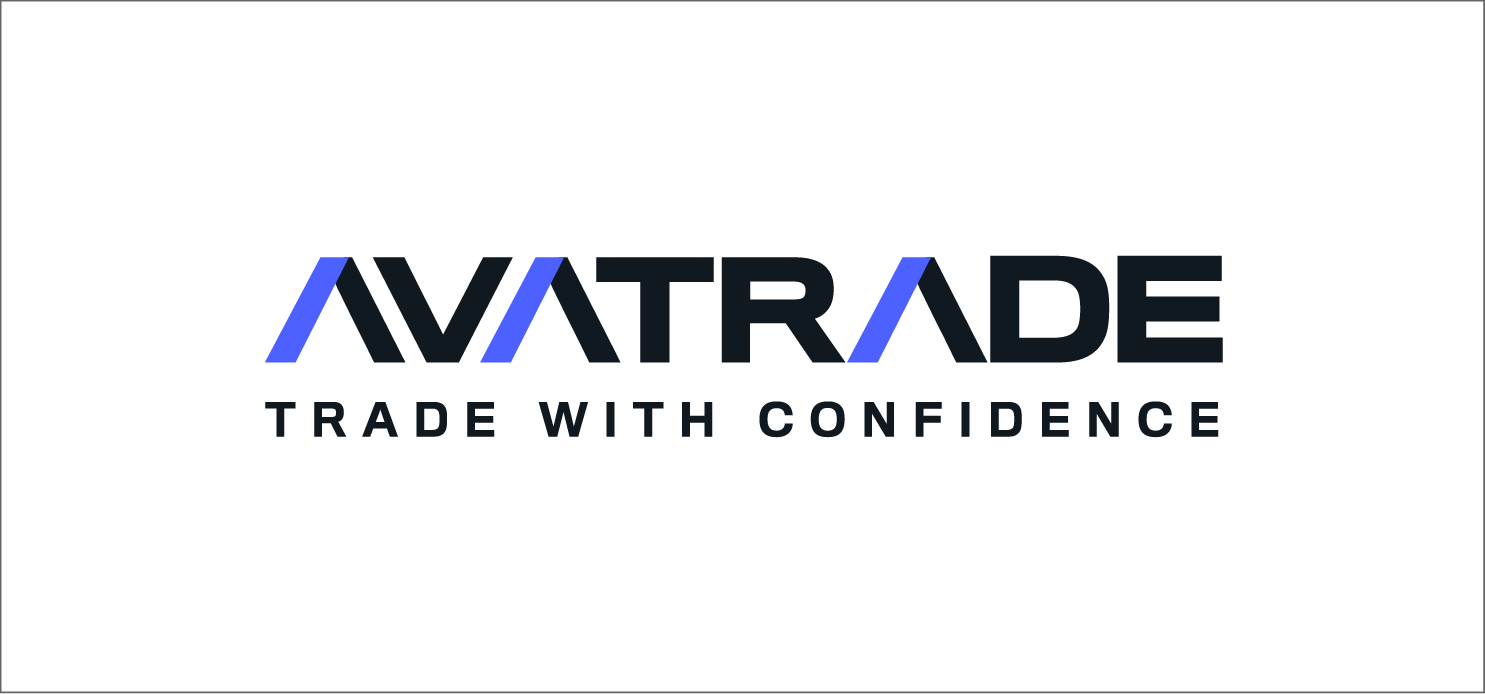Best Automated Trading Platform in the UK
All products and services featured are independently selected by WikiJob. When you register or purchase through links on this page, we may earn a commission.
- A List of the Top Automated Trading Platforms in the UK
- Comparison Chart of the Best Automated Trading Platforms UK for January 2025
- The Best Automated Trading Platforms UK
- What Is an Automated Trading Platform UK?
- How to Choose the Right Automated Trading Platform UK
- How to Start Trading on an Automated Platform
empty
empty
empty
empty
- Frequently Asked Questions
- Final Thoughts
When you use an automated trading platform, there is no need to manage your trades manually. An automated trading platform can help simplify the trading process, maximise profit and save time.
This article will give you an overview of the best automated trading platforms in the UK.
To help you decide on the right platform, we have included a list of the pros and cons of some of the most popular automated trading platform UK options.
You can also learn about the differences between automated and other trading platforms.
A List of the Top Automated Trading Platforms in the UK
Automated trading platforms are programs that carry out trades on the financial markets according to predetermined entry and exit conditions.
Traders use extensive technical analysis to set position parameters, including open orders, trailing stops and stop orders.
Comparison Chart of the Best Automated Trading Platforms UK for January 2025
Fees Low spreads; No min deposit | Available Assets & Features Wide range of instruments; Scalping allowed | Regulation & Customer Support FCA, DFSA, CySEC, BaFIN, ASIC, CMA, SCB | |||
Fees No commission; $50 min deposit | Available Assets & Features Stocks, Forex, Crypto; CopyTrading | Regulation & Customer Support FCA regulated; 24/5 support | |||
Fees Fixed spreads; $100 min deposit | Available Assets & Features Forex, CFDs, Crypto; AvaProtect | Regulation & Customer Support Regulated by multiple bodies; Strong security | |||
Fees Variable fees; $250 min deposit | Available Assets & Features Extensive market access; Risk management tools | Regulation & Customer Support FCA, ASIC regulated; 24/7 support | |||
Fees No commission; $0 min deposit | Available Assets & Features Forex, Indices, Commodities; Market analysis tools | Regulation & Customer Support FCA regulated; SSL encryption | |||
Broker Coinrule | Fees Subscription-based; No min deposit | Available Assets & Features Crypto-focused; Customizable strategies | Regulation & Customer Support Not a broker; Secure API keys |
The Best Automated Trading Platforms UK
Here is an overview of the best automated trading platforms available to UK traders.
1. Pepperstone
Pros
- Quick and easy account opening
- Excellent customer service
- Intuitive interface
- Free deposits and withdrawals
- Low fees, including forex fees, makes this a good option if you want the best automated forex trading platform UK
- MetaTrader platform allows automation of trades
Cons
- Limited offering – mostly CFDs
- Withdrawal fee for international bank wires
Pepperstone is not listed on any stock exchange. It is regulated by the FCA in the UK and carries six other licenses that cover the rest of the world.
It is a CFD and forex broker offering negative balance protection (terms apply). The account setup process is entirely digital.
The Pepperstone MT5 trading platform is available on both desktop and mobile devices. There is no minimum deposit.
Non-trading fees and forex trading fees are low. There are no account fees or inactivity fees. However, the financing rates can be high if you want to trade CFDs. When using the desktop trading platform, you can set up price alerts.
There are two types of account – Standard and Razor.
If you choose the Razor account, you will be charged commission fees, but the spreads are low. Forex commission and spread fees differ according to your trading platform (MetaTrader 4, MetaTrader 5 or cTrader, or Tradingview).
There is no withdrawal fee if you withdraw funds to a credit/debit account or electronic account. Withdrawing funds to a domestic bank account is free, but there is a $20 fee for international transfers.
Customer service can be accessed via live chat, phone or email. This support is available 24 hours per day, and you can expect fast and helpful responses. The educational materials offered are excellent. Pepperstone traders can access a demo account, educational videos and valuable webinars.
Pepperstone was regulated by several financial authorities and held licenses in various jurisdictions.
2. eToro
Pros
- Easy-to-use platform
- Excellent mobile app
- A good option for those seeking the best automated trading platform for beginners UK
- Free stock and ETF trading
- Choice of investment assets, including cryptocurrency
- Offers ready-made stocks and shares portfolios
- Good educational and social features
- Dedicated CopyTrader copy trading feature
Cons
- Withdrawal fees
- Inactivity fees
- Cryptocurrency fees
eToro offers a Copy Trading feature that allows users to replicate the trades of experienced investors, making it accessible and ideal for beginners.
The platform is regulated by CySEC (Cyprus), ASIC (Australian Securities and Investments Commission), and the FCA (UK), providing a secure environment for traders. While the FSCS does not protect funds, customer funds are stored separately from eToro’s operational funds.
You can access eToro's Copy Trading on desktop, laptop, tablet, and mobile devices, making it easy to monitor and copy trades anytime, anywhere. To get started with Copy Trading, UK traders need a minimum deposit of £50, or £500 if depositing via wire transfer. Note that funds deposited in GBP will incur a conversion fee to USD, as eToro operates in USD.
eToro’s Copy Trading fees are low, with no management fees even when following other traders. There is a 0% commission on stock trades, though FX conversion, withdrawal, and inactivity fees may apply. Withdrawals carry a fixed fee of £5, with a minimum withdrawal amount of £30. Platinum, Platinum+, or Diamond Club members enjoy fee-free withdrawals.
An inactivity fee of £10 per month applies after 12 months without login activity. Club membership, available to clients with a minimum balance of £5,000, offers additional perks such as live chat support and access to exclusive educational resources.
For new users, eToro provides extensive educational materials in its Trading and Investing Academy, with blog posts, videos, articles, and webinars to support their trading journey.
Customer support is accessible through a web-based ticket system, with live chat available to Club members.
3. AvaTrade
Pros
- Quick and easy account opening
- No fees for deposits and withdrawals
- Excellent research tools
Cons
- Limited offering – crypto, forex and CFDs
- High fees for inactivity
- Mid-range forex fees
AvaTrade is not listed on any stock exchange. It is based in Ireland and regulated by several global authorities, including ASIC in Australia, the Central Bank of Ireland and the Financial Futures Association of Japan (FFAJ).
It is a CFD and forex broker – it does not offer stocks.
AvaTrade is available on three mobile trading platforms:
- AvaTradeGO
- AvaOptions
- MetaTrader 4
AvaTradeGO is a modern mobile trading platform. It is user-friendly and offers a good search function, but you can only use it for basic order types such as stop, limit and market.
It also allows you to set up price alerts and receive push notifications.
For desktop trading, you can use AvaTrade’s MetaTrader 4 desktop platform.
Fees are generally low, although inactive accounts will incur high fees of $50/£50/€50 per quarter after three consecutive months of inactivity. After 12 months of inactivity, an additional annual fee of $100/£100/€100 will be charged.
The minimum deposit is £100 (or 100 units of any other base currency).
AvaTrade offers high-quality educational features and a demo account. Customer support is good, but only available 24/5. You can contact customer services via live chat, email or phone.
4. IG
IG is a great share trading platform for beginners thanks to its user-friendly interface and extensive educational resources.
Pros of IG include a wide range of trading instruments and markets, as well as the ability to access multiple account types and trading platforms. The platform also offers a demo account for beginners to practise trading strategies before investing real money.
However, IG isn’t the cheapest share trading platform, with relatively high trading fees and a minimum deposit requirement of £250 when paying by credit/debit card or PayPal.
In terms of additional fees, IG charges a commission fee for share trading, starting from £8 per trade. There’s also a custody fee of 0.25% per year for holdings of £250 or more.
Overall, IG is a solid choice for beginners looking for a user-friendly platform with extensive educational resources, but investors should be aware of its fees and minimum deposit requirements.
5. XTB
Pros
- Low cost
- A good option if you want the best automated trading platform for beginners UK
- Excellent mobile app
- ETFs/commission-free stocks available to some traders
- Fast, free deposits and withdrawals
- Simple and quick to open an account
- Easy to use
Cons
- Traders are charged a fee for inactivity
- Limited product portfolio – mostly CFDs (Contract for Differences), which can be risky
XTB is listed on the Warsaw Stock Exchange. Several global financial authorities, including the UK FCA, regulate it.
Funds are protected by the Financial Services Compensation Scheme (FSCS), and the customer’s money is stored in a separate account from XTB’s funds.
The xStation 5 software is available on the web, desktop, mobile and tablet. You can use XTB to trade stocks, shares, ETFs, indices, commodities and forex.
The cost of using XTB is generally low. Most transactions have no withdrawal fee, although inactivity fees are charged.
XTB offers commission-free trading on stocks (up to a maximum of €100,000 per month).
However, there is a very high conversion fee of 0.5%. Traders must pay this if their account is in one currency and they want to buy a stock in another currency.
CFD trading fees are built into the spread or charged as a separate commission. You must pay a swap cost (a financing rate or overnight fee) for positions held overnight.
There is no charge for account maintenance. Deposits and withdrawals are free, provided you use a debit card to make deposits and withdraw more than £200.
After a year of inactivity, you will be charged a monthly inactivity fee of £10.
There is only one type of account available: the Standard XTB account.
It’s easy to open and only takes about 15 minutes, including document uploads. There is no minimum deposit.
The trading screen includes a news tab, which means you can stay up to date on all of the latest information on potential trades, market news and the economy.
It also offers an analysis of companies available for trade, including the market cap, net profit margin, earnings per share and price-earnings ratio.
It includes a built-in trading calculator, which traders can use to plan orders and estimate costs and profits before placing a trade. In the UK, you can trade with up to 30x leverage (depending on the asset you want to trade).
XTB offers negative balance protection, which means you cannot lose more money than you have in your account. Margin-level protection is low – if your margin level goes under 50%, your positions will start being sold to get this back up to 50%.
For automated trading, you can use XTB to create your own systems and automate your trading activity.
Customer support is excellent. Upon account sign-up, a designated account manager will be assigned, and you can contact them by email or phone.
During the week, a general support line is available 24 hours per day. This is available via phone, live chat and email. Users can also access a help centre on the website, which provides answers to many frequently asked questions.
CFDs are complex instruments and come with a high risk of losing money rapidly due to leverage. 76% of retail investor accounts lose money when trading CFDs with this provider. You should consider whether you understand how CFDs work and whether you can afford to take the high risk of losing your money.

6. Coinrule
Pros
- Works with a range of cryptocurrency exchange platforms
- Free account option available
- Various subscription tiers available to suit different needs
- User-friendly interface
Cons
- Monthly subscriptions can be expensive
- No mobile app
Fee: Free with a starter account or from $29.99 per month
With its simple, intuitive design, Coinrule is a good choice for those who are new to trading as well as more advanced traders.
Users don’t need to know any code to set their trading rules.
Coinrule is web-based and works across several cryptocurrencies as well as supporting some of the most widely-used exchanges, such as BitMex.
7. CMC Markets
Pros
- Wide range of offerings
- A good option if you want the best automated forex trading platform uk
- MetaTrader 4 allows full automation of trades
- Regulated by the FCA
- Excellent customer service and education resources
- Client account protection
- No minimum deposit
- Low fees
Cons
- High CFD spreads
- Does not offer back-testing or automated trading capabilities
CMC Markets is listed on the London Stock Exchange and is a constituent of the FTSE 250 Index. It is regulated in five tier-1 jurisdictions, including the FCA. Eligible deposits are protected by the FSCS (up to £85,000).
The CMC Markets MetaTrader 4 trading platform is available on desktop, tablet and mobile applications. You can use it for spread betting, CFD trading and forex.
The fees associated with using CMC Markets are generally low. There is no brokerage fee, and other fees tend to be low. CMC Markets charges a currency conversion fee of 0.5%.
There are no fees associated with account opening, withdrawals or deposits. After 12 months of inactivity, users will be charged a monthly fee of £10.
There are several account options available, including:
- Demo account
- CFD account
- Spread betting account
- FX Active account
- Professional account
- Corporate account
Customer service support is available on a 24/5 basis (Monday to Friday). This is offered via phone support, live chat and email.
What Is an Automated Trading Platform UK?
An automated trading platform is a program with predetermined rules for entering and exiting trades.
After conducting market analysis, traders can adjust their chosen automated trading platform according to their preferences, adjusting parameters for opening and exiting trades.
Using an automated trading platform helps to eliminate the emotional elements of trading.
Instead of the trader having to consider whether to enter or exit a trade, the order is executed automatically by the trading platform once the pre-specified parameters or algorithms are met.
There are a few different automated trading methods to consider. These include copy trading, robots and Expert Advisors (EAs).
How to Choose the Right Automated Trading Platform UK
Step 1. Consider Your Investment Skills
The first thing to consider is your existing investment skills and experience. Are you new to trading or a seasoned professional?
If you are new to trading, choose an automated trading platform with good customer service and educational resources.
If you are an experienced trader, consider the costs associated with your preferred platform and whether it offers the type of trading you want.
Step 2. Consider Your Cost/Risk Appetite
You must think about your funds and how much you are willing to risk.
If you have a well-funded portfolio, choose a platform that offers customer loyalty programmes or VIP packages.
Before deciding, you must consider whether the available benefits provide good value for money.
Step 3. Consider the Customer Service Offering
The type of customer service offered differs between trading platforms.
Some only provide email-based support between Monday and Friday, whereas others offer live chat, email and telephone support on a 24/7 basis.
Consider the type of customer service you will need before opening an account with any platform.
How to Start Trading on an Automated Platform
Find Your Chosen Automated Trading Platform
The first step is to choose a platform. Weigh up the pros and cons of each one before making a decision. Consider your funds and how much you will likely spend on fees.
Complete the Registration Process
Each platform offers a slightly different registration process. Some platforms provide entirely digital applications, whereas others may require ID verification, which can take longer.
Make a Deposit and Set Your Trading Parameters
Decide how much you want to deposit. If there is a minimum deposit for your chosen platform, you must ensure your deposit meets this requirement.
For some platforms, you will be required to pay a deposit fee. Once your deposit has been made, you can set your trading parameters.
For example, you might set up your profile to sell shares of a stock when its 50-day moving average falls below the 200-day moving average.
Let the Platform Trade for You
All that is left to do is sit back and let the platform trade for you. Over time, you should make adjustments to your trading parameters. On most platforms, this is easy to do.
Frequently Asked Questions
The best UK automated trading platforms include eToro, AvaTrade, XTB, CMC Markets and Pepperstone MT5.
Before choosing an automated trading platform, it is important to consider your trading style, available funds and preferred level of risk.
Automated trading can be very profitable. However, it is also risky.
If you want to profit from algorithmic trading, you must have a comprehensive understanding of trading strategies and markets.
Automated trading is not risk-free. Some risks of automated trading include mechanical faults and difficulty tracing errors.
If you want to start automated trading, the first step is to choose an automated trading platform.
If you are new to trading, choosing a platform that offers a demo account, educational resources and good customer support is important.
Once you have selected your platform, you will need to decide on and set the parameters of your trading strategy.
You can use these parameters or rules to create an algorithm, which the system will use to make trades on your behalf.
Yes, automated trading platforms are legal. No laws or rules are in place to stop traders from using them.
Automated trading is permitted, providing it is regulated by the relevant organisation, for example, the FCA or ASIC.
In the UK, automated trading platforms are regulated by the European Commission, Markets in Financial Instruments Directive (MiFID II) and the Prudential Regulation Authority.
These organisations help ensure automated trading happens on regulated platforms and set regulations on high-frequency and algorithmic trading.
According to Glassdoor, the average base pay for an Algorithmic Trader in 2025 is £56,719 per annum.
Automatic trading can be a good option for beginners.
If you are looking for a low-maintenance strategy using advanced technology, automated trading for beginners is worth considering.
However, if you want to make money from automatic trading, you must have knowledge of the trading markets and an understanding of trading strategies.
Yes, many automatic trading platforms offer demo accounts.
Some automatic trading platforms set a minimum deposit.
Once you have chosen your preferred platform, you can check whether it requires a minimum deposit.
The safest sites for automated trading are those regulated by financial authorities such as the FCA, ASIC and CySEC.
Some of the safest sites for automated and copy trading include eToro, AvaTrade, XTB, Pepperstone MT5 and CMC Markets.
Before starting an automated trading account, it is essential to consider how much time you can dedicate to trading, how much capital you have and your personality type.
Consider your strategy – will it be trend-based, news-based or something different?
Review several different trading account types before choosing one.
You should also use the demo accounts to see which ones you like the look and feel of.
Final Thoughts
Using an automated trading platform allows you to trade on a 24/7 basis without the need to be using your computer, tablet or mobile device all of the time.
Choosing a platform and automated trading strategy takes time, so it is important to consider all the different options before making any decisions on what is likely to be the best platform for automated trading for your circumstances.
Automated trading for beginners is possible, but you must understand manual trading before you start.
Once you have this knowledge, choosing the most appropriate algorithm for your trading strategy will be easier.
WikiJob does not provide tax, investment or financial services and advice. The information is being presented without consideration of the investment objectives, risk tolerance, or financial circumstances of any specific investor and might not be suitable for all investors. Past performance is not indicative of future results. Investing involves risk including the possible loss of principal.










